Player-of-the-Month: Lea Jansen
| July 11, 2023
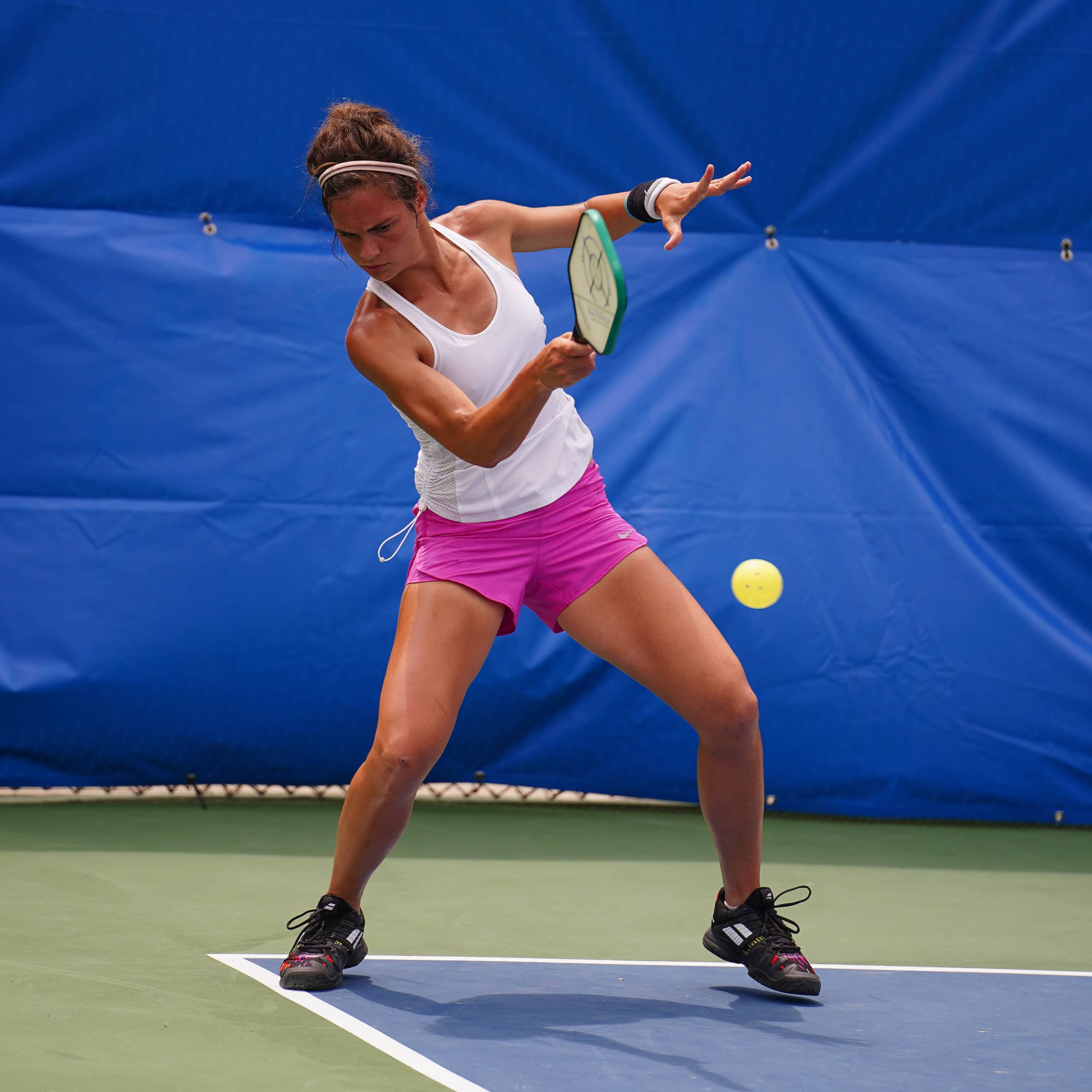
Get to know Lea Jansen – the former college tennis player from the original home of pickleball: the state of Washington. Jansen has made quite a splash in pickleball over the last year and has quickly climbed to the top of Women’s Singles where she is now ranked #2 in the world. Known for her fiery on-court persona and powerful shots, Jansen is one of the most exciting players to watch on tour!
Lea, you’re one of the hottest up-and-coming players on tour right now! Did you ever expect to be here? What have been some of the coolest parts of your journey thus far?
Ha– Thank you! When you start playing, you always hope that you can get there, but there have been a lot of moments where I definitely questioned myself. I am just glad that my hard work is starting to pay off. The coolest part of the journey to me is being able to reconnect with people from my childhood through pickleball. Tyson and I spent a bit of time together because my dad was his tennis coach and Tyson used to live with us during the summers. I knew Irina through tennis as well and was good friends with her cousin growing up. Now, I get to see them on a consistent basis (Tyson almost daily) and have the privilege of getting to compete with them sometimes as well. Everything comes full circle and the opportunities to spend time with old connections has been the coolest part of this journey, hands down.
Something that’s recently caught the public’s attention is your decision to work with a mental coach. Can you share a bit about what you and he work on and how it’s helped you?
Oh boy, I could talk for hours about this because it’s pretty scientific and complicated and I am still learning day by day about it. I don’t think it was a secret to the public that I used to struggle with my emotions on court (the emotions are still there now, but they are not as bad as before haha). This was something that I was plagued with while playing tennis and sadly, followed me to pickleball. The work that I am doing now is less mental and more physical, BUT the outcome is improved mental performance. What I do with Neuro-Fit and Dr. Jim Costello basically blends the principles of exercise physiology and the science of brain plasticity to strengthen neural pathways to areas within the brain responsible for coordinating movement, regulating mood and emotion, and executing performance. By isolating specific movements, we get specific results, which is improved nerve system performance which leads to improved mental health.
Where are you from and what do you do when you’re not playing pickleball?
I am from Spokane, Washington, I grew up here and just recently moved back about a year ago from Grand Rapids, MI. When I am not playing pickleball, I hike, cook, spend a lot of time with my friends, and go to the lake with my two dogs, Cookie and Bentley. My only complaint about my job is that I have to go for long stretches without seeing my dogs, so I try to make the most of my time with them when I am not playing pickle.
What has been your experience of the pickleball world and what do you appreciate about it?
My experience in pickleball has been nothing but positive. I love how everyone is accepting of others and focused on growing the sport. Everyone who I have interacted with is so passionate about pickleball and want to be a part of making it grow bigger and better each year. I’m sure it’s been said many times before, but coming from tennis, pickleball offers an amazing and completely different atmosphere. Pickleball has come so far even in the two short years that I have been playing, and it is because of the people in the community that this has happened. I am really excited to see where we will be in another couple years.
How did you need to evolve your game or what skills were really important for you to learn when you began transferring over from tennis to pickleball?
Tennis is very different from pickleball, and I didn’t realize this until I started playing. In the beginning, the biggest thing for me to do was become much more patient. In tennis, I was more of a power player who was looking to end the point quickly, so this was a big mindset change for me. Learning how to work my way to the kitchen line and stay in long dink rallies was what I spent pretty much my whole first year learning, and I think is an area that I will always work on. The touch game, taking pace off, and how to counteract spin are skills that I have begun to (and continue to!) learn day-by-day.
What was your college experience like?
I went to college at Washington State University where I studied accounting and played tennis. I wish I had been a little more serious about tennis in college, but I think this is what has made me appreciate pickleball that much more. I enjoyed college as I had a lot of familiar friends from high school there but was also able to enjoy the college experience from the athlete perspective and meet many new people from all over the world. Pullman, W.A., where my university is located, is a small town that is only an hour away from Spokane, so there wasn’t much to do to entertain yourself beyond campus life. My one regret about my college experience is not using tennis to go to another part of the country and get out of my comfort zone.
What’s something that people might not know about you?
I am a type 1 Diabetic. I found out that I was sick at the age of 23 (which is pretty late for diabetic standards) by unexpectedly going into ketoacidosis. Having type 1 diabetes means I have to check my blood sugar 4-5 times a day (or on match days, 8-10 times) and give myself insulin shots. I was done playing tennis by the time I found out so it’s been a new experience to have to manage my blood sugar levels while playing a sport. I am going to start wearing a pump to administer insulin for me which will be pretty noticeable while I play, but will help take some of the stress off my mind.
Do you have any superstitions?
If I play well in an event at a tournament, I recycle whatever song I used to warm-up to on that day and use it during my warm-up at my next event. I have done this since I was 11 years old playing junior tennis, and I don’t think it’ll ever go away. Since this year’s US Open in April, I have been listening to “Hymn for the Weekend” by Coldplay on singles day. I’m still searching for a doubles day warm up song that sticks haha.
Tell us about the “resets” that you do before each serve?
It is actually scientific and helps me regroup as well as focus. Dr. Jim Costello created this reset for me through his program Neuro-Fit, and it is a little more complicated than I have room to explain here, but I can explain it in simpler terms. The resets make me cross the “midline” of my body before I play a point, which ensures that the left and right sides of my brain are activated. I touch my left shoulder and then my right hip with my paddle in order to “cross midline” and then do the same thing on the opposite side (touch my right shoulder then my left hip). By doing these exercises, my brain is able to coordinate smooth and controlled movement. Without crossing my body’s midline, I would be only able to efficiently move on one side of my body.
How did you get into pickleball?
I can say that if Tyson had not started playing, I don’t think I would have either. My dad saw how much success he was having on social media, and Tyson reached out to Andrea Koop in Grand Rapids – where I was living at the time – to have me start playing. Like most, I practiced a couple times but wasn’t convinced until I played in the 2019 Beer City Open. After that, I was completely hooked. I haven’t looked back since then, and it’s crazy to think that that moment was 2 years ago now.
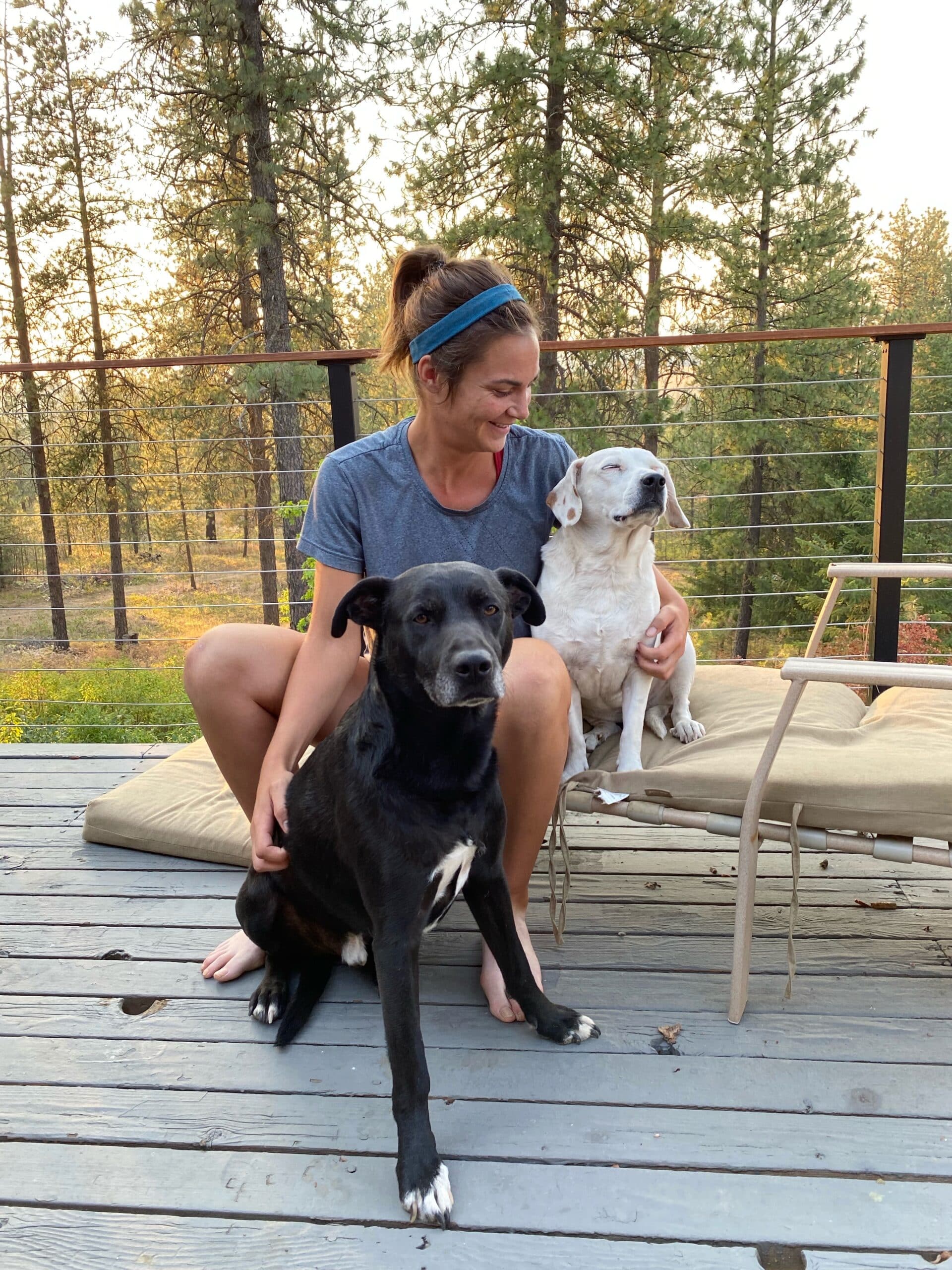
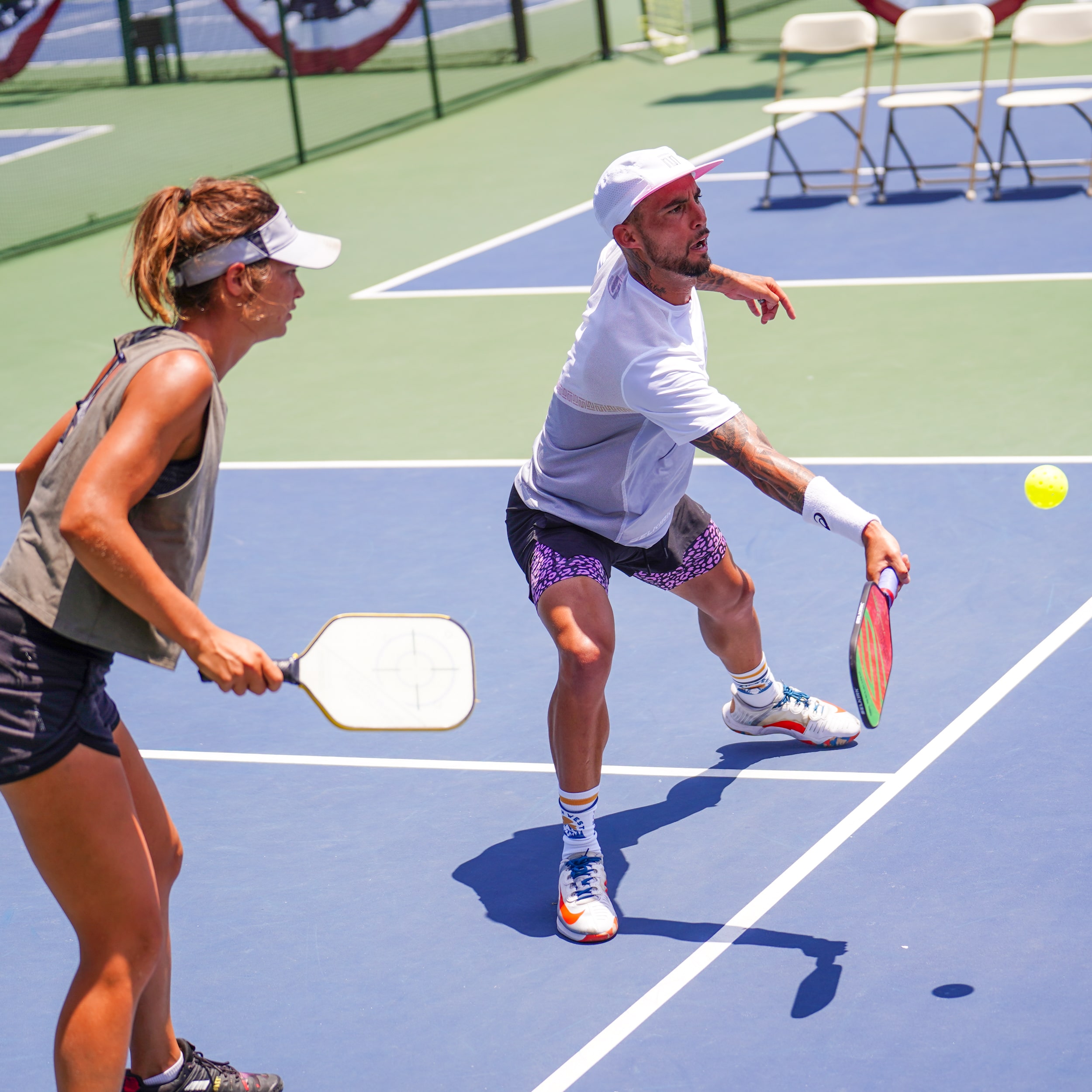
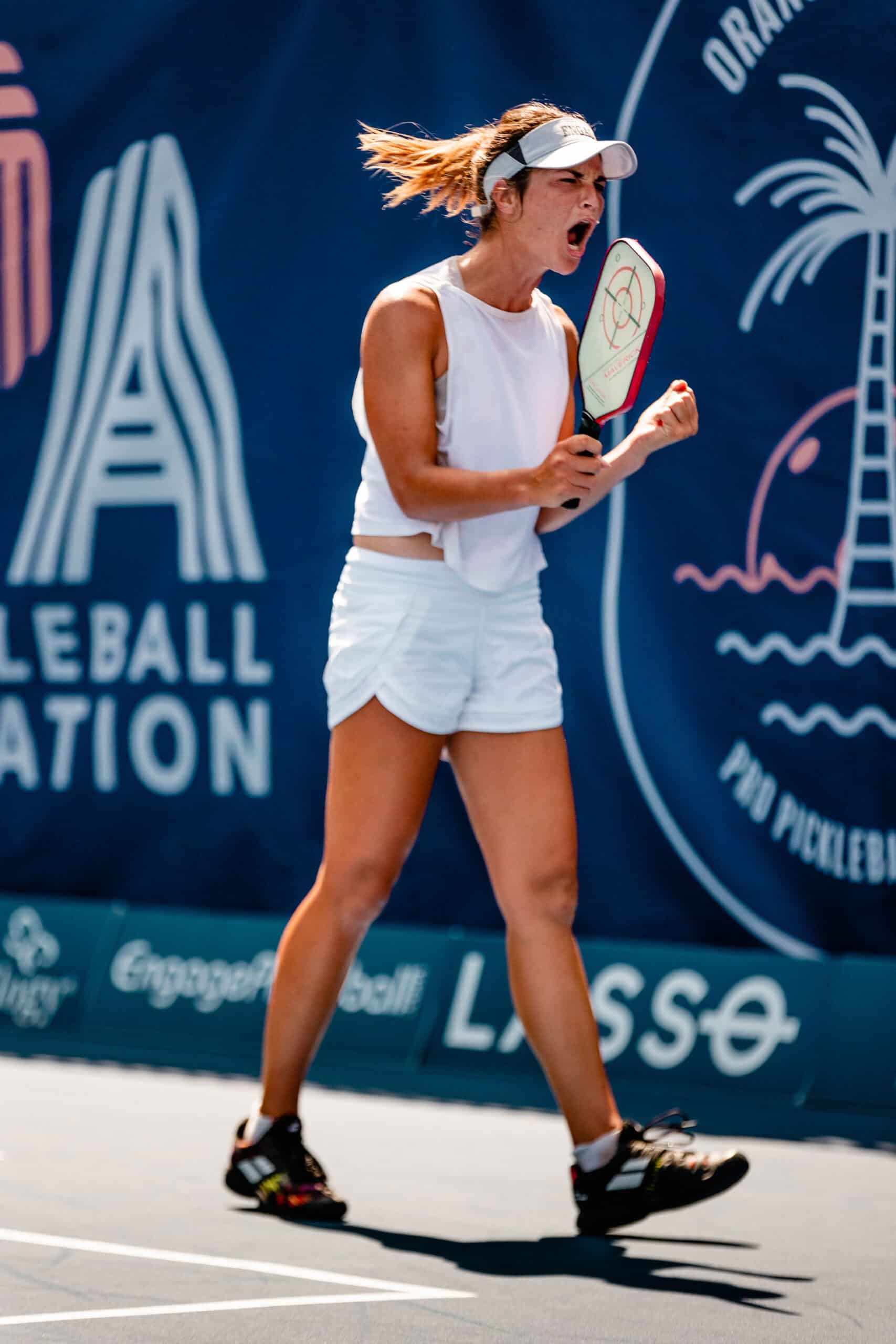

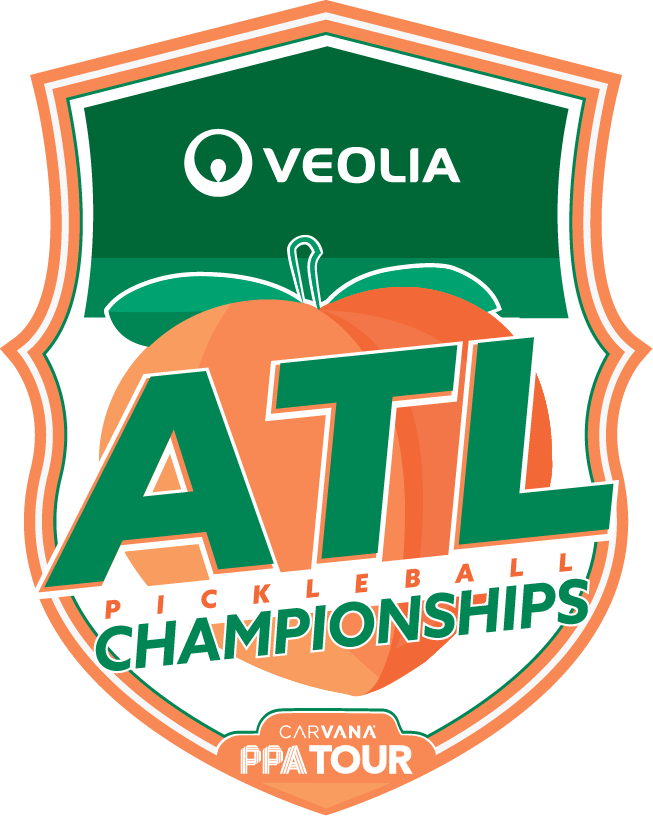
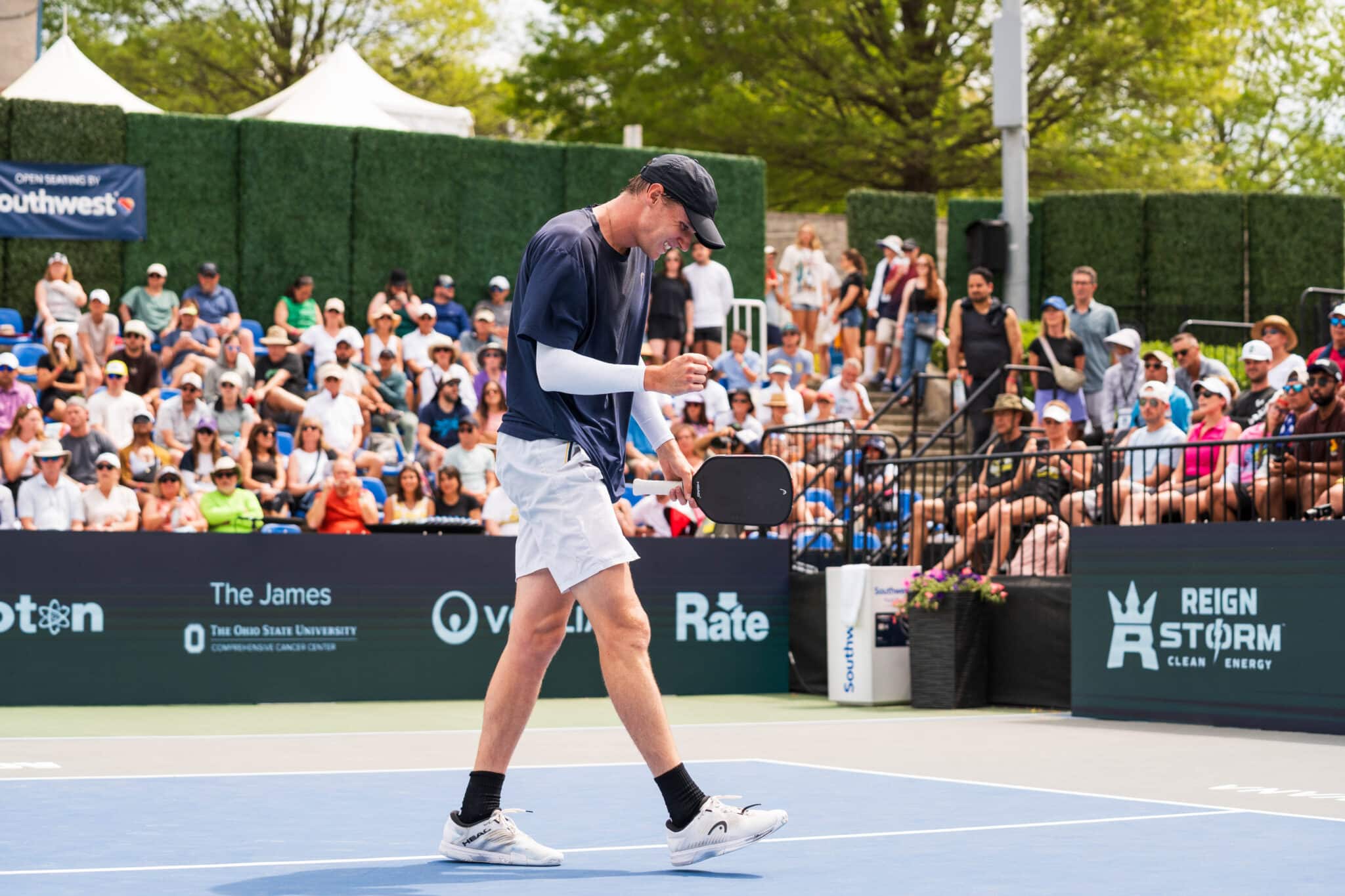
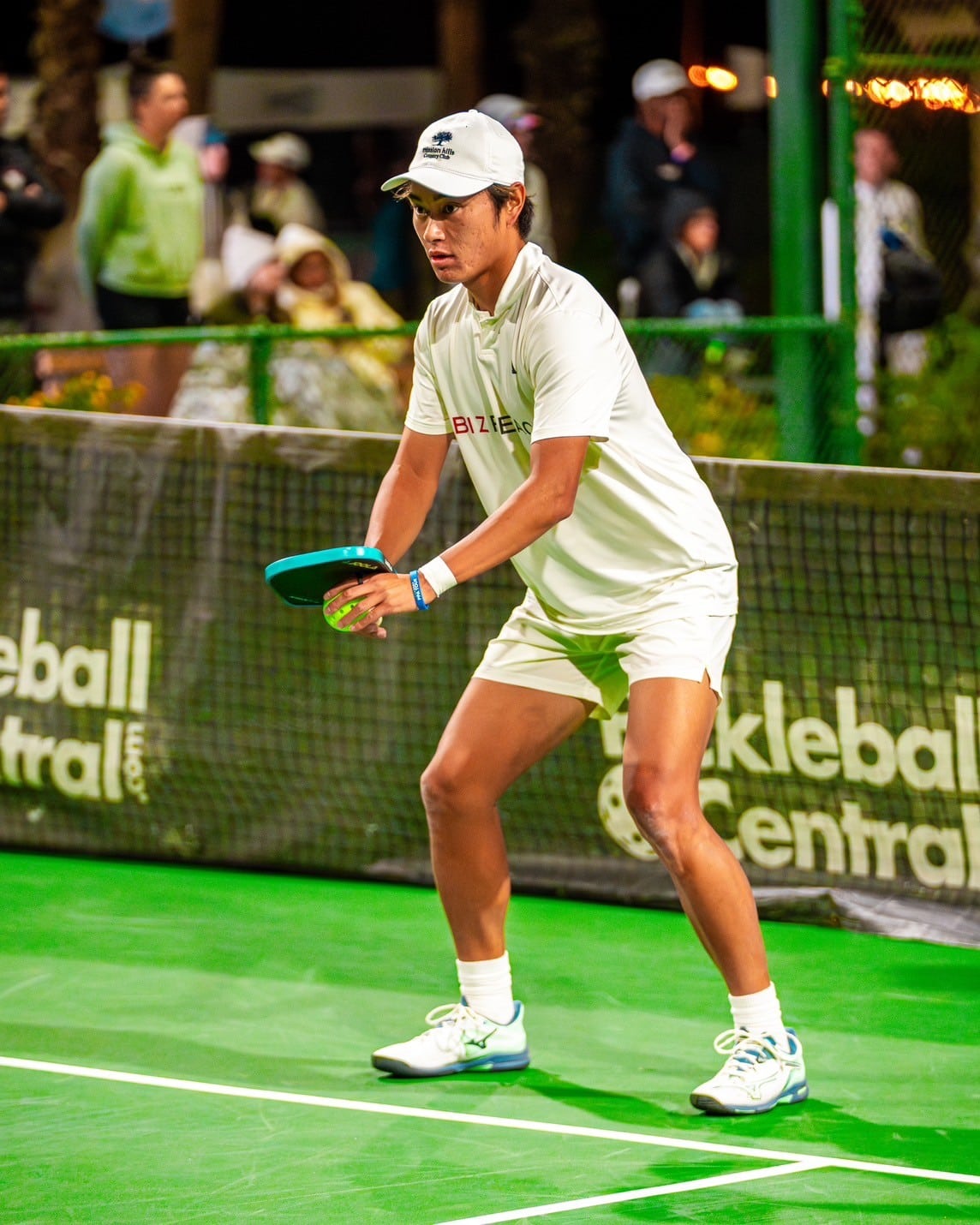
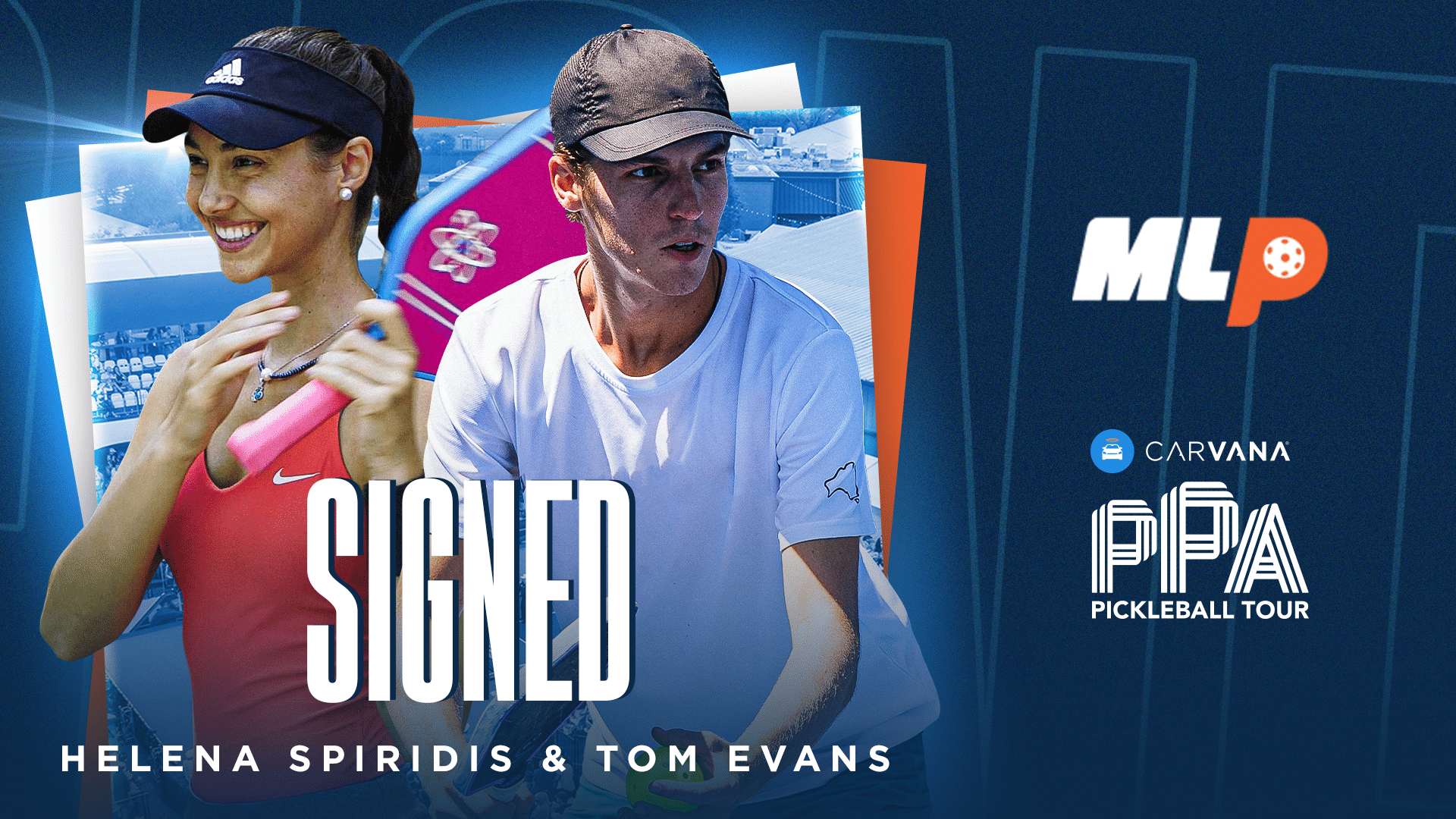
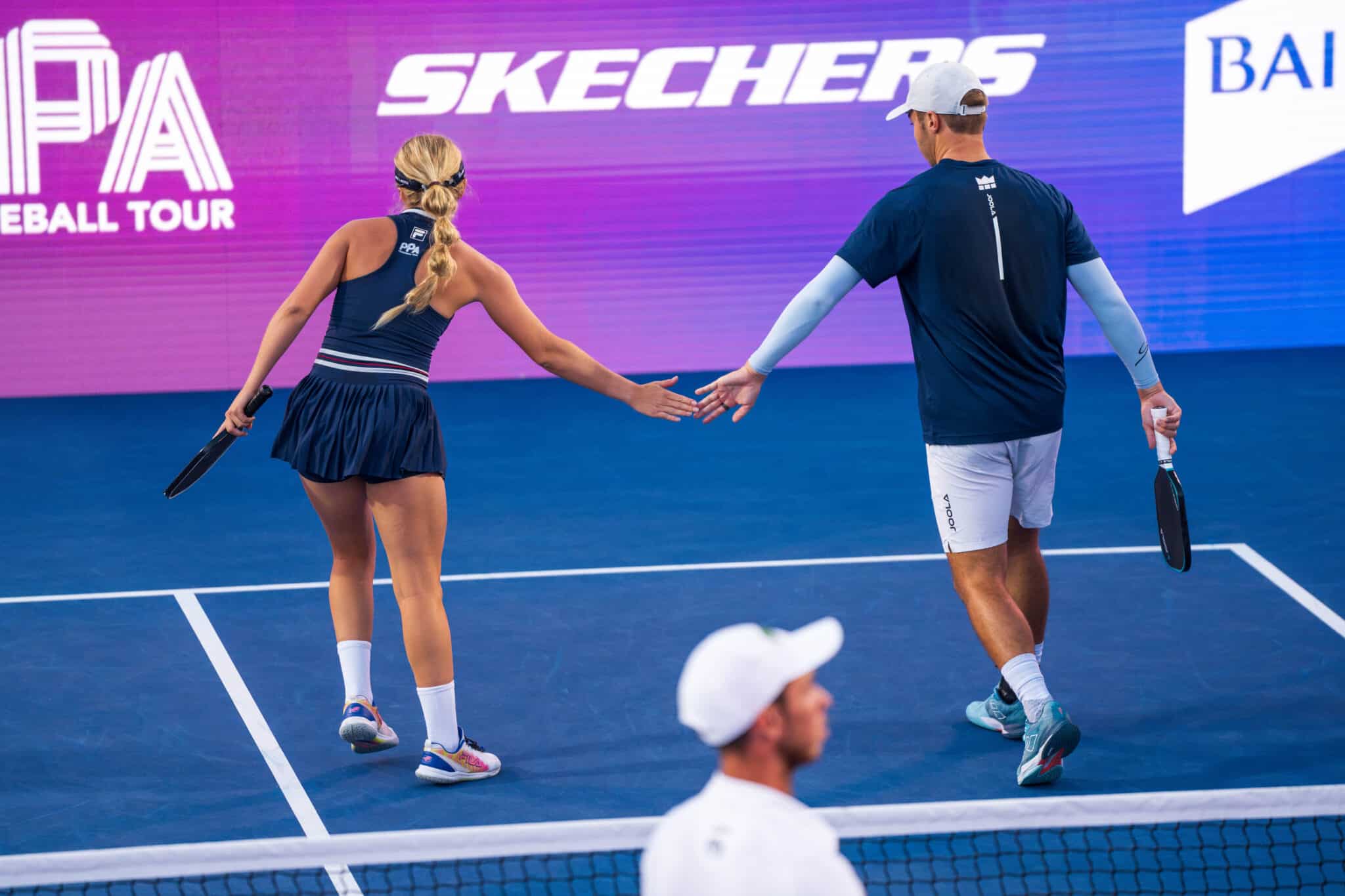
1 comment
Been a big fan of Lea for a while. Sorry that she has given up singles but completely understand the reasons behind the decision. Looking forward to continue cheering her on.